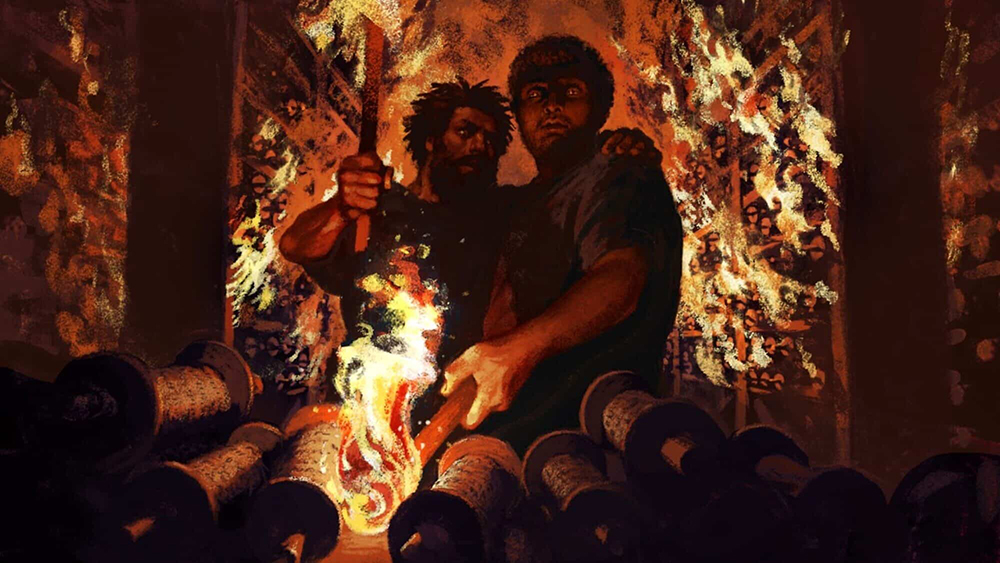|
Getting your Trinity Audio player ready...
|
“If we are not able to work together, to compromise, we’re going to a bad place,” Gidi Dar told JNS.
By: Dave Gordon
The 90-minute animated film “Legend of Destruction,” which is composed of 1,500 paintings, premiered in 2021 in Hebrew. The new English version of the film, which addresses the Roman destruction of Jerusalem and the Second Temple in the first century of the Common Era, has been screened globally leading up to Tisha B’Av.
Gidi Dar, who directed the film, told JNS that it has taken on renewed significance in the aftermath of tension in Israel over both judicial reform prompted by the government of Prime Minister Benjamin Netanyahu and the terrorist attacks by Hamas on Oct. 7.
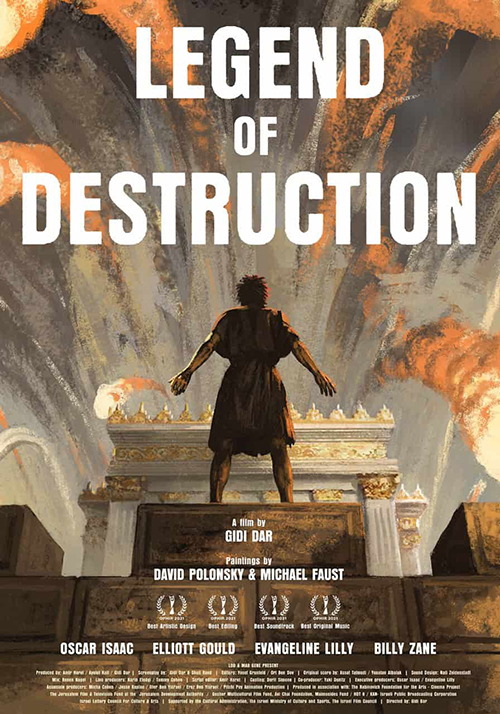
“An absolute turn—a complete change in all levels and layers of understanding of the situation,” Dar said. “Eventually, unity depends on us, and that if we are not able to work together, to compromise, we’re going to a bad place.”
“But we do have a lesson over here. We know what we should do. The question is: Can we do it?” Dar added. “Specifically, to work together. People in Israel, for example, understand that they have to work together in the current situation, which is very tense.”
‘From baseless hatred to baseless love’
The Hebrew film has won four Ophir Awards—the Jewish state’s equivalent of an Oscar—out of seven nominations. Naftali Bennett, then-Israeli prime minister, endorsed it, as did Israeli President Isaac Herzog, who has recommended that it become part of the country’s high school curriculum.
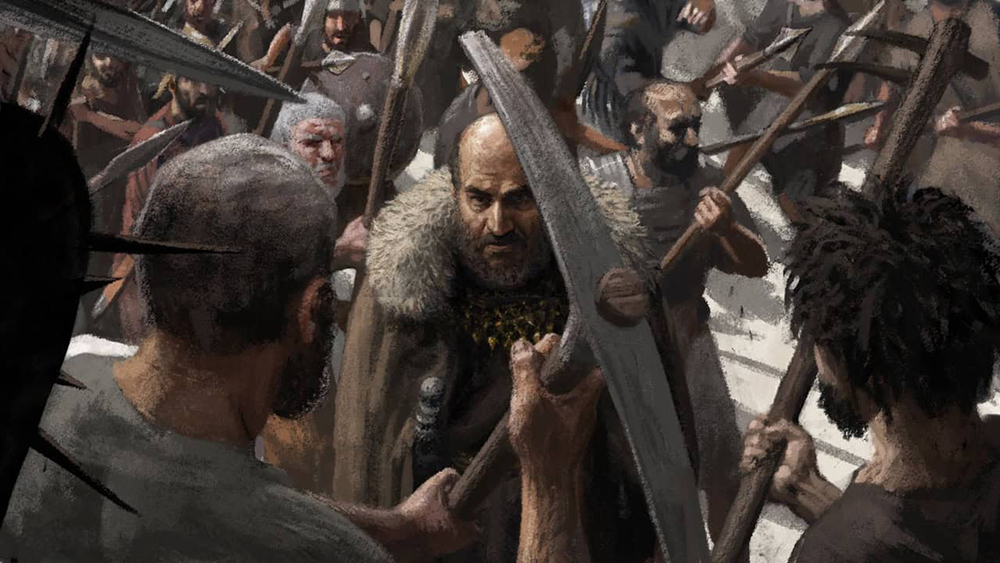
Dar penned the script, which is inspired by Talmudic accounts and the writings of Josephus, with Shuli Rand. The English re-release features the voice-over talent of the Oscar-nominated actor Elliott Gould (the only Jewish actor among the voice-over actors) as Rabban Yochanan Ben Zakkai.
The plot follows Ben Batich (voiced by Oscar Isaac), who turns from a dedicated student of his uncle, Zakkai, to zealotry. At 80, Zakkai is guided by strong faith, amid corruption surrounding the Temple and its agents, and the moral tugs-of-war of Judean Queen Berenice (Evangeline Lilly), great-granddaughter of King Herod, who largely oversees the Temple and Jerusalem.
Daphna Pollak, a local activist, together with Canadians for Israel and a consortium of partner organizations, brought the film to Toronto for an Aug. 11 screening, which drew about 280 people.
She had already seen it in Hebrew, and when she learned that the Lincoln Square Synagogue in New York was screening an English version on July 14, she knew she wanted to bring it to her city as well.
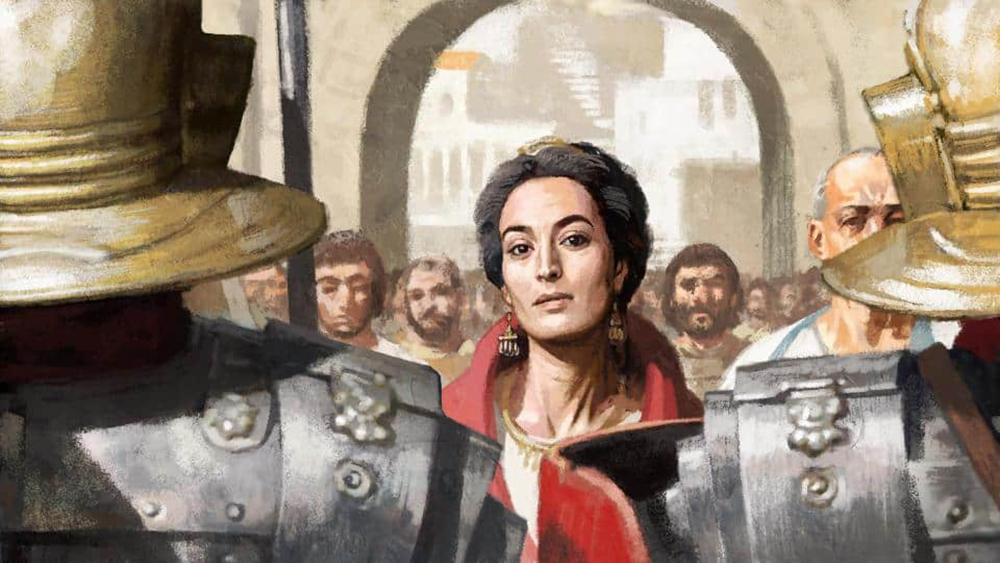
“It was the same perspective as seeing a Holocaust film,” Pollak told JNS. “But this time, the Jewish people brought the tragedy among themselves.”
“It just dovetails with what’s happening with Israeli politics and that makes it all the more painful at this time,” she added. “We can trace back the problem ever since biblical times when Joseph was sold to slavery by his brothers. When we treat each other with love and respect, and when we stand united, nothing can harm us.”
“But when we are divided and allow our negative feelings to dominate, our enemies take advantage of us, and we’re at their mercy,” Pollak added. “History has taught us that. It’s the classic message of Tisha B’Av. I hope that we will turn from baseless hatred to baseless love, and we will turn this chapter of our history from destruction to one of unity, heroism and victory.”
‘An unknown road’
Dar told World Mizrachi that he read a book about Josephus in 2013 that made him want to create a documentary about the destruction of the Temple and of Jerusalem. Knowing the budget for such an endeavor would be prohibitive, he commissioned artists David Polonsky and Michael Faust (the two behind the Oscar-nominated 2008 animated war docu-drama “Waltz with Bashir”) to create the 1,500 paintings.
The artists were inspired by, among others, the Italian artist Caravaggio (1571-1610); the 20th-century British painter Francis Bacon; and Norwegian artist Edvard Munch (1863-1944). The two were also reportedly inspired by images on ancient pottery and by the examples of contemporary Israelis, including Rabbi Menachem Froman of Tekoa in the Gush Etzion region of Judea, who died in 2013. The artists modeled Ben Zakkai on the latter.
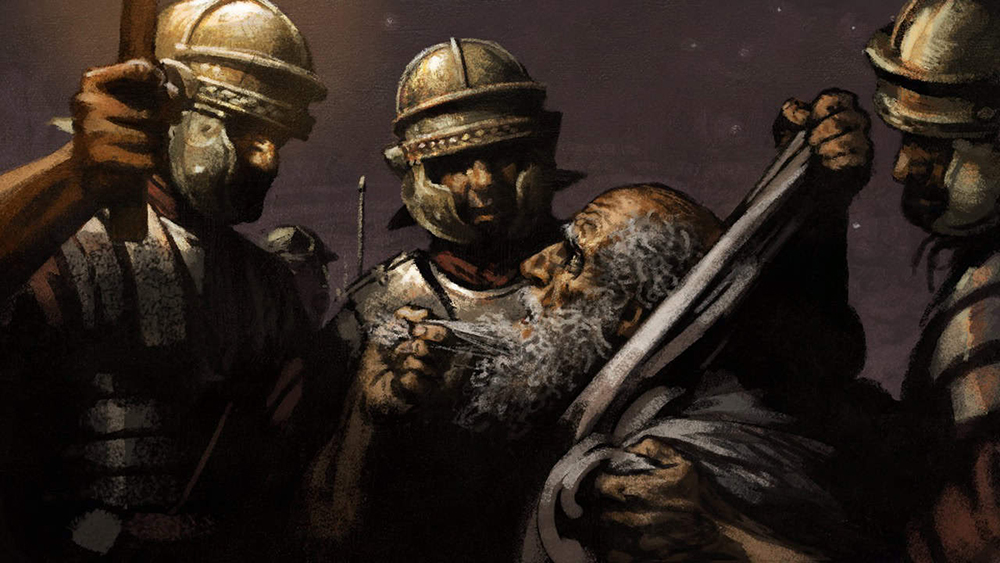
“I was on an unknown road, creating this film,” Dar told JNS. “Unknown in many ways—first of all, cinematically, this technique, but also in terms of dealing with this subject story.”
“Most of us don’t really know the story, including myself,” he acknowledged.
Dar told JNS that the voice actors aren’t merely doing voice-overs. “They are really great actors, and it took really great actors to do it stylistically well,” he said.
In an unreleased “behind the scenes” video that JNS viewed, Billy Zane, who voices Simeon Bar Giora, notes that “the delivery system was so unique and exciting.”
“You feel like you’re watching something that’s completely in motion,” Lilly added.

“This style of animation—I don’t think anyone’s done before,” she said in the video. “Even though it was a more restricted medium, I was amazed at how alive it became. Almost more alive than it would be if it were a moving picture where every detail was answered for me.”
(JNS.org)




